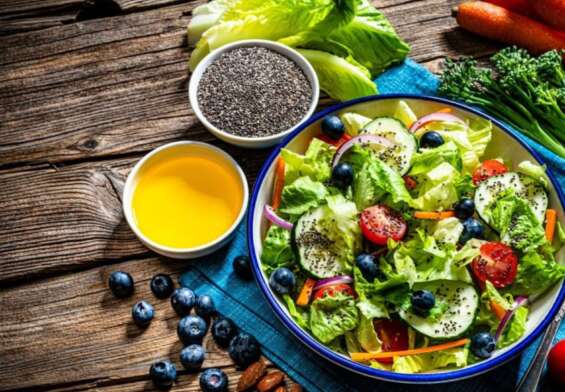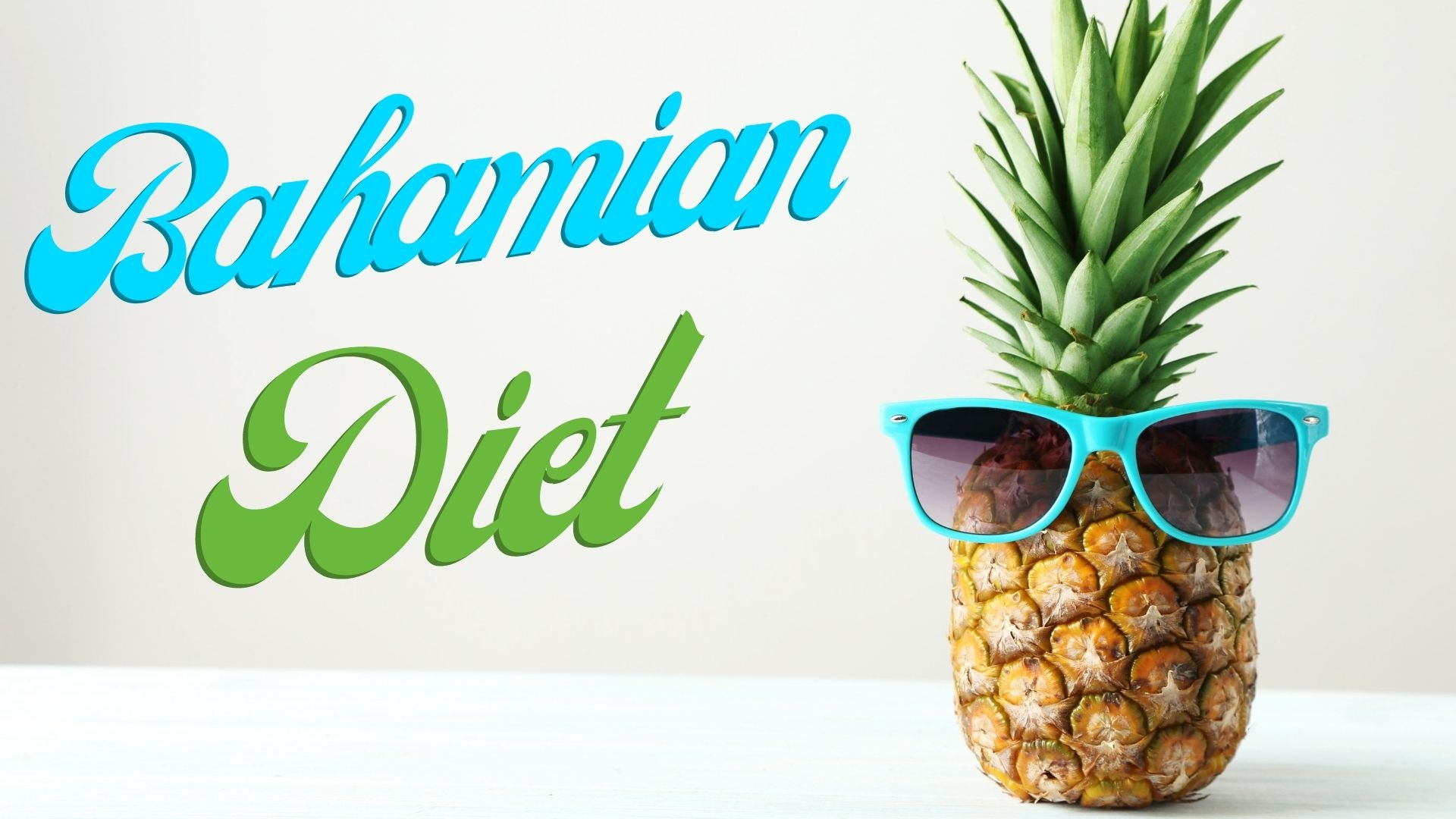
Plant-Based Diet: The Ultimate Guide to Healthy Eating
A plant-based diet is a diet that focuses on foods derived from plants, including vegetables, fruits, whole grains, nuts, seeds, and legumes. This type of diet has been gaining in popularity as more and more people become aware of the health benefits associated with eating a diet rich in plant-based foods. Studies have shown that following a plant-based diet can reduce the risk of developing chronic diseases such as diabetes, heart disease, and cancer. It can also help promote a healthier weight and even reduce the risk of depression. In addition, plant-based diets are often more sustainable than diets that include animal products, making them an environmentally friendly choice. Whether you’re already following a plant-based diet or are just looking to add more plant-based foods to your diet, this guide will provide you with all the information you need.
What Are the Health Benefits of Eating a Plant-Based Diet?
If you’re thinking about switching to a plant-based diet, you’re in luck! Turns out, there are some pretty sweet health benefits that come with eating mostly plants. Here are just a few of them:
Increased energy: When you eat a plant-based diet, you’re getting a lot of natural energy boosters. The vitamins and minerals in plant-based foods will help keep your energy levels up throughout the day.
Reduced risk of heart disease: Plant-based diets are low in saturated fats and high in fiber, both of which are linked to a lower risk of heart disease.
Improved digestion: Eating plant-based foods can help keep your digestive system running smoothly. The fiber in plants helps keep your digestive tract healthy and functioning properly, plus plant-based foods are a great source of prebiotics which can help promote healthy gut bacteria.
Clearer skin: Eating a diet rich in fruits and vegetables can help clear up skin issues like acne and dryness. That’s because fruits and veggies are packed with antioxidants and other nutrients that can help keep your skin looking and feeling its best.
Weight loss: Eating a plant-based diet can also help you slim down. Plant-based foods are naturally lower in calories than other types of food, plus they’re packed with fiber which can help you feel fuller for longer.
So, if you’re looking to improve your health, why not give a plant-based diet a try? Not only is it better for your body, but it’s also a lot of fun to experiment with all the delicious plant-based recipes out there!
How to Transition to a Plant-Based Diet: Tips and Advice
Start slowly: Going plant-based doesn’t mean you have to jump in with both feet all at once. If you’re transitioning from an animal-based diet, start by going meatless one day a week or by swapping out your favorite dishes with plant-based alternatives.
Expand your palate: Plant-based diets are incredibly versatile, so don’t be afraid to try new things! Try adding some fresh fruits and veggies to your meals, trying out some vegan recipes, or even getting creative with plant-based proteins.
Get creative in the kitchen: Get creative with cooking plant-based meals. You can make some delicious meals with just a few simple ingredients and some spices!
Embrace plant-based snacks: There are plenty of delicious plant-based snacks out there, from nut butters to trail mixes to popcorn. Keep some of these handy for when you need a quick snack.
Try some meat alternatives: You don’t have to give up your favorite dishes when transitioning to a plant-based diet. There are plenty of meat substitutes, like tofu, tempeh, and seitan, that can make your favorite dishes just as tasty as their animal-based counterparts.
Join a plant-based community: Joining a plant-based community can be a great way to connect with other like-minded people and get support on your journey. There are plenty of online and in-person communities you can join to get tips, advice, and recipes.
Have fun: Transitioning to a plant-based diet doesn’t have to be all work and no play! Have fun experimenting with different recipes and dishes, trying new foods, and finding new favorites.
What Are the Different Types of Plant-Based Diets?
Are you ready to go green? If you’re looking to incorporate more plant-based food into your diet, you’ve got plenty of options. Here’s a rundown of the various types of plant-based diets and how they can help you reach your health goals.
The Flexitarian Diet: This is the most relaxed of the plant-based diets. It’s all about incorporating more plant-based foods into your diet, while still allowing for occasional meat, fish, and dairy consumption. It’s a great place to start if you’re looking to transition to a more plant-based diet.
The Vegan Diet: This is the strictest of the plant-based diets. It excludes all animal products, including dairy and eggs, as well as any products that have been tested on animals. It’s a great way to get the most nutrients from a plant-based diet.
The Raw Vegan Diet: This is a vegan diet that focuses on eating only raw foods. The idea is that by eating foods in their rawest state, you’ll get the most nutrients and avoid any processed foods.
The Fruitarian Diet: This diet consists of mainly fruits and nuts. It’s a great way to get a lot of vitamins and minerals, and it’s especially beneficial for people who are looking to lose weight.
The Juice Cleanse Diet: This diet is all about drinking freshly-made juices to give your body a break from solid foods. It’s a great way to detox and reset your digestive system.
No matter which plant-based diet you choose, the key is to find one that works for you. With all the options available, you’re sure to find something that fits your lifestyle and dietary needs. Bon appétit!
How to Make Delicious Plant-Based Meals for the Whole Family
Are you tired of cooking the same old meals for your family? Want to try something new that’s healthy and delicious? Well, it’s time to get creative in the kitchen and whip up some delicious plant-based meals that everyone in the family can enjoy! Here are some tips and ideas to help you get started:
Be Prepared: Before you start making plant-based meals, make sure you have all the ingredients you need. Look up recipes online and make a list of the ingredients you need to buy. Don’t forget the basics like herbs, spices, and seasonings!
Start Simple: Start with simple recipes that are easy to make. A great place to begin is with dishes like stir-fries, tacos, and salads. Once you get the hang of cooking these basic dishes, you can start to get more adventurous with your cooking.
Mix it Up: Don’t be afraid to experiment and mix different ingredients together. There are so many plant-based ingredients that you can use to create delicious meals, so it’s worth experimenting with different combinations.
Use Condiments: Condiments can make all the difference in a dish. Try adding some vegan mayo, hot sauce, or salsa to your meals to give them an extra punch of flavor.
Have Fun: Above all else, have fun in the kitchen! Cooking should be a fun and relaxing experience, so don’t take it too seriously. Have a laugh and enjoy the experience of creating something delicious for the whole family!
With these tips, you’ll be able to whip up delicious plant-based meals for the whole family in no time. So, get creative and start cooking!
5 Essential Kitchen Tools for Plant-Based Cooking
- High-Speed Blender: If you are looking to make smoothies, sauces, soups, and other plant-based dishes, then you need a high-speed blender. You can make a variety of dishes with this handy kitchen tool, including creamy vegan ice cream, vegan cheese sauces, and vegan milkshakes.
- Food Processor: If you want to make plant-based dishes that require some chopping and blending, then a food processor is a must-have. With this tool, you can easily make vegan pesto, hummus, guacamole, and more.
- Spiralizer: This tool is a must-have for creating vegan pasta dishes. You can easily make zucchini noodles, sweet potato curly fries, and other creative vegan dishes with a spiralizer.
- Air Fryer: If you are looking for a healthier way to make plant-based dishes, then an air fryer is a great tool. This kitchen tool is great for making vegan French fries, vegan buffalo wings, and other crunchy vegan snacks.
- Immersion Blender: This is an essential tool for making soups, sauces, and other plant-based dishes. An immersion blender is great for making smooth and creamy vegan sauces, soups, and desserts without having to use a blender or food processor.
6 Plant-Based Alternatives to Popular Animal-Based Foods
- Tofu Dogs: Move over, hot dogs! It’s time to try something new – and delicious! Tofu dogs are the perfect plant-based alternative to beef hot dogs. Grill them up and top them with your favorite condiments for a tasty plant-based treat.
- Seitan Steak: Who says vegans can’t enjoy steak? Seitan is an incredibly versatile plant-based alternative that looks and tastes just like steak. Serve it up with your favorite sides and you’ll never miss the real thing.
- Black Bean Burgers: Filling and tasty, black bean burgers are a great way to get your burger fix without compromising your vegan lifestyle. Top them with your favorite condiments and enjoy!
- Tempeh Bacon: Forget about bacon – it’s time to try tempeh bacon! This savory plant-based alternative is delicious and can be used as a substitute for bacon in any recipe.
- Mushroom Jerky: Who needs beef jerky when you can enjoy mushroom jerky instead? This chewy and flavorful snack is perfect for vegans on-the-go and makes a great addition to any lunchbox.
- Coconut Bacon Bits: Add a salty and smoky flavor to your favorite dishes with coconut bacon bits. They’re perfect for vegans who want a bacon-y flavor without consuming any animal products.
The Environmental Benefits of Eating a Plant-Based Diet
Just imagine it—you’re chowing down on a delicious plant-based meal and, at the same time, you’re doing your part to save the planet! It’s true: eating a plant-based diet is one of the most eco-friendly behaviors you can adopt. Here’s how:
First of all, growing plants requires fewer resources than raising animals. Plants don’t need to be fed, they don’t need to be housed, and they don’t produce any waste. Plus, they absorb carbon dioxide and produce oxygen, which helps reduce global warming.
Second, plant-based diets use far less water than diets that contain meat. Growing animals for food requires huge amounts of water for drinking, cleaning, and cooling, whereas growing plants requires very little.
Third, growing plants instead of animals reduces the amount of methane gas emitted into the atmosphere. Methane is a powerful greenhouse gas that contributes to global warming.
Finally, eating a plant-based diet reduces your carbon footprint. Animal agriculture is responsible for a massive amount of carbon dioxide emissions, whereas plants don’t contribute to this problem at all.
So, if you want to be kind to the planet, why not give a plant-based diet a try? Who knows—you may even find that you love it!
The Pros and Cons of Eating a Plant-Based Diet
Pro: You can finally give your non-vegan friends an answer when they ask why you don’t eat meat. You can tell them, “I’m on a plant-based diet for health, environmental, and ethical reasons—oh, and it’s really tasty too!”
Con: You’ll always be the one asking for the vegetarian option in restaurants, or for them to make it without cheese. But hey, at least you’ll always have something to talk about with the waitstaff!
Pro: You get to be creative with your meals. No longer will you rely on the same old dishes—you can find so many delicious plant-based recipes online!
Con: Grocery shopping can be tricky when you’re trying to stick to a plant-based diet. It’s easy to get stuck in a rut and pick up the same things every time.
Pro: You’ll be saving the planet. Eating a plant-based diet is one of the best ways to reduce your carbon footprint and help combat climate change.
Con: You’ll be spending more time in the kitchen. But trust us, it’s worth it! Plus, you get to learn a lot of new cooking skills.
Common Nutritional Deficiencies to Look Out for on a Plant-Based Diet
As a plant-based eater, you have to be extra vigilant about your nutritional intake. After all, you don’t want to end up with a deficiency in the middle of your vegan journey! Here are some common nutritional deficiencies to look out for:
- Vitamin B12: This essential vitamin is found naturally in animal products, so vegans need to make sure they’re getting enough of it from fortified foods or supplements. Otherwise, you could be at risk of developing anemia or nerve damage.
- Calcium: While there are plenty of plant-based sources of calcium, such as kale and broccoli, it can be difficult to get enough of this nutrient if you’re not careful. Make sure you’re including calcium-fortified plant-based milks and other dairy substitutes in your diet.
- Iron: Iron is an important mineral that helps the body transport oxygen throughout the body. Plant-based sources of iron, such as legumes, lentils, and dark leafy greens, are typically not as absorbable as the iron found in meat. Eating foods rich in vitamin C along with your iron-containing meals can help your body absorb more of it.
- Omega-3 fatty acids: These important fatty acids are found in higher quantities in fish, so vegans need to make sure they’re getting enough of them from plant-based sources such as flaxseeds, walnuts, and chia seeds.
So there you have it – four common nutritional deficiencies to watch out for on a plant-based diet. If you’re ever feeling concerned about your nutrient intake, be sure to consult with a registered dietitian – they’ll help you make sure you’re getting enough of the good stuff!
How to Eat Out and Still Follow a Plant-Based Diet
Eating out can be a challenge when you’re following a vegan or plant-based diet, but it doesn’t have to be! With a little bit of savvy and perseverance, you can still get your fill of delicious vegan meals when dining out. Here are some tips for making your next restaurant visit a success:
Check the menu ahead of time. Most restaurants now have menus online and it’s worth taking a few minutes to familiarize yourself with the options before you go. This will save you precious time and help you avoid the dreaded “what can I eat?” moment when you arrive.
Ask questions. Don’t be afraid to ask the server or chef about the ingredients. It never hurts to double-check to make sure the dish is vegan-friendly.
Get creative. Sometimes, the best vegan dishes are the ones you create yourself. If there’s not an obvious vegan option, ask the chef if they can prepare something special for you.
Bring your own condiments. Who knows what lurks in those mystery bottles of ketchup and mayo? Save yourself the worry and bring your own vegan-friendly sauces and condiments.
Have a backup plan. If all else fails and you’re stuck with a limited selection, it’s ok to have a “plan B”. Why not order a side salad and some steamed veggies, or a bowl of soup?
Eating out as a vegan doesn’t have to be a stressful experience! With these tips, you’ll be sure to find a delicious, plant-based meal wherever you go. Bon appetit!
How to Stay Motivated and Enjoy a Plant-Based Diet
Are you feeling unmotivated and unenthusiastic about your plant-based diet? Don’t worry, we’ve all been there. But with a few simple tips and tricks, you can stay motivated and have a blast on your plant-based journey!
Get creative in the kitchen: Whether you’re a master chef or a novice in the kitchen, get creative with plant-based ingredients and recipes. Try out new dishes, experiment with flavors, and don’t be afraid to get a little wild.
Don’t forget the snacks: When it comes to staying motivated on a plant-based diet, snacks are key. Find some tasty, healthy options that you enjoy, so you can stay energized and satisfied throughout the day.
Treat yourself: Who said being on a plant-based diet has to be boring? Treat yourself to a vegan ice cream cone or a plant-based meal out with friends. When you give yourself a little reward, you’ll be more motivated to stay on track.
Get inspired: Surround yourself with people and resources that keep you motivated. Read plant-based blogs, watch documentaries, and talk to people who have been successful on their plant-based journey.
Have fun: Most importantly, don’t forget to have fun! Enjoy the journey and make it an adventure. With a little motivation and a light-hearted attitude, you’ll be well on your way to living a plant-based life you love.
Conclusion
In conclusion, a plant-based diet is a great way to improve overall health and reduce the risk of many diseases. It is also a sustainable and environmentally friendly option for those looking to reduce their carbon footprint. Eating a plant-based diet can improve energy levels, help with weight loss and improve digestion. With the variety of plant-based foods available, it can be easy to create delicious, nutritious meals. Plant-based diets are growing in popularity and can be a great way to improve overall health and wellbeing.











